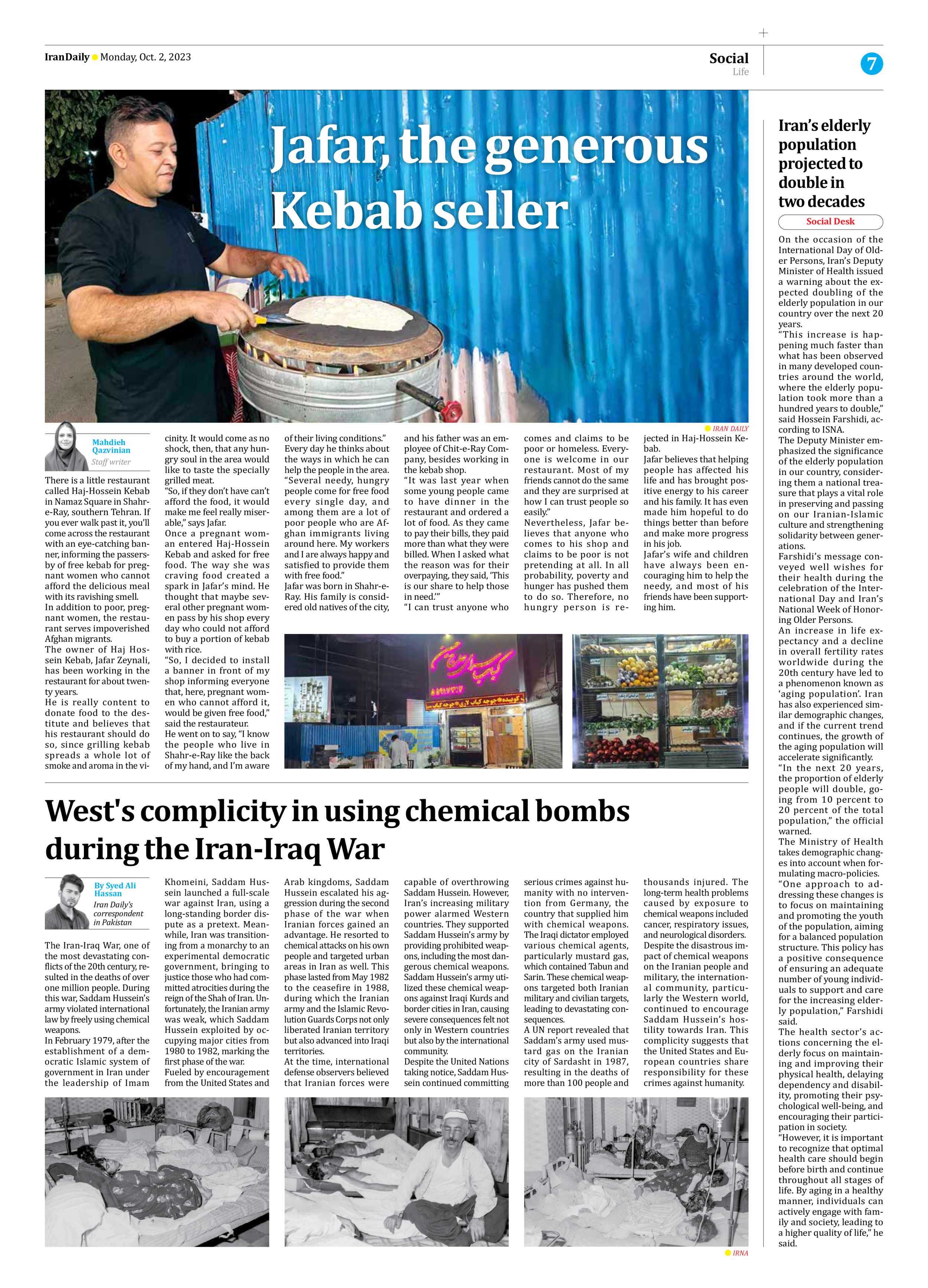
Iran’s elderly population projected to double in two decades
On the occasion of the International Day of Older Persons, Iran’s Deputy Minister of Health issued a warning about the expected doubling of the elderly population in our country over the next 20 years.
“This increase is happening much faster than what has been observed in many developed countries around the world, where the elderly population took more than a hundred years to double,” said Hossein Farshidi, according to ISNA.
The Deputy Minister emphasized the significance of the elderly population in our country, considering them a national treasure that plays a vital role in preserving and passing on our Iranian-Islamic culture and strengthening solidarity between generations.
Farshidi’s message conveyed well wishes for their health during the celebration of the International Day and Iran’s National Week of Honoring Older Persons.
An increase in life expectancy and a decline in overall fertility rates worldwide during the 20th century have led to a phenomenon known as ‘aging population’. Iran has also experienced similar demographic changes, and if the current trend continues, the growth of the aging population will accelerate significantly.
“In the next 20 years, the proportion of elderly people will double, going from 10 percent to 20 percent of the total population,” the official warned.
The Ministry of Health takes demographic changes into account when formulating macro-policies.
“One approach to addressing these changes is to focus on maintaining and promoting the youth of the population, aiming for a balanced population structure. This policy has a positive consequence of ensuring an adequate number of young individuals to support and care for the increasing elderly population,” Farshidi said.
The health sector’s actions concerning the elderly focus on maintaining and improving their physical health, delaying dependency and disability, promoting their psychological well-being, and encouraging their participation in society.
“However, it is important to recognize that optimal health care should begin before birth and continue throughout all stages of life. By aging in a healthy manner, individuals can actively engage with family and society, leading to a higher quality of life,” he said.







